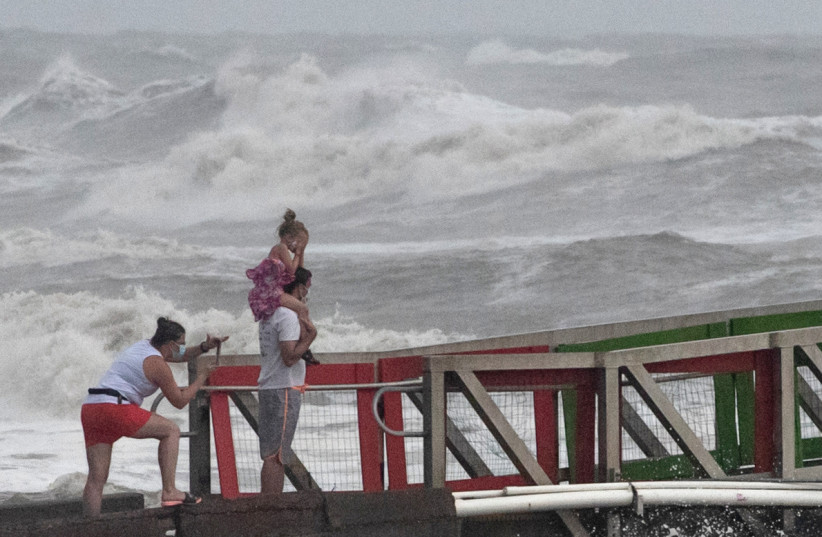According to a Yale University study, research predicts that "future hurricanes will roam over more of Earth" into populated areas.
The study suggests that "the 21st century will see an expansion of hurricanes and typhoons into mid-latitude regions, which includes major cities such as New York, Boston, Beijing and Tokyo. The mid-latitudes are where most of the world's population lives and where most economic activity takes place."
Climate warming means "hurricanes this century could spin farther north in the Atlantic than they used to," USA Today reported.
Published in the peer-reviewed British journal Nature Geoscience, the study says that "tropical cyclones – hurricanes and typhoons – could migrate northward and southward in their respective hemispheres, as the planet warms as a result of anthropogenic greenhouse gas emissions."
Yale physicist and lead author of the study Joshua Studholme says "this represents an important, under-estimated risk of climate change." Studholme is also a contributing author to the UN's Intergovernmental Panel on Climate Change sixth assessment report, in which authors had "high confidence" that the evidence of human influence on hurricanes and tropical cyclones has strengthened, reported by the BBC.

Tropical cyclones typically "form at low latitudes that have access to warm waters from tropical oceans and away from the shearing impact of the jet streams," he said.
Research shows that "as the climate warms, temperature differences between the Equator and the poles will decrease. In summer months, this may cause weakening or even a split in the jet stream, opening a window in the mid-latitudes for tropical cyclones to form and intensify."
The authors of the study argue that "this course is not set in stone and that dramatic reductions in carbon emissions, over the next decade particularly, could alter the outcome", BBC News reported.
